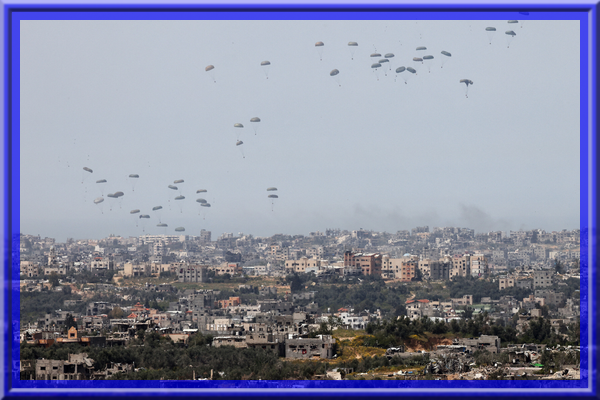
Israel contests UN-backed report on imminent famine in Gaza
COGAT says report relies on information from Hamas, grossly underestimates amount of water available; US official says famine ‘quite possibly’ in some areas of northern enclave
Israel on Friday contested a recent UN-backed report on the humanitarian situation in Gaza that said famine was imminent and likely to occur by May in northern Gaza, and by July in other parts of the Strip.
The report by the Integrated Food Security Phase Classification (IPC) further heightened global concerns regarding the humanitarian situation in the war-torn Strip.
The IPC uses a complex set of technical criteria. Its most extreme warning is Phase 5, which has two levels, catastrophe and famine. Famine is assessed as at least 20% of the population suffering extreme food shortages, with one in three children acutely malnourished and two people out of every 10,000 dying daily from starvation or from malnutrition and disease.
In northern Gaza, “the upward trend in non-trauma mortality is also expected to accelerate, resulting in all famine thresholds likely to be passed imminently,” the IPC said.
The study said the number of people projected to experience “catastrophic hunger” across the besieged enclave between now and mid-July had nearly doubled to more than 1.1 million, or about half the population, since the IPC last reported in December, when there was already record hunger.
COGAT, the Israeli Defense Ministry body responsible for civilian affairs in the Palestinian territories, said in a response Friday that “the report contains multiple factual and methodological flaws, some of them serious.”
It argued the report grossly underestimated the amount of water available per person per day (claiming over 20 liters versus the report’s assessment of less than 1) while noting it lacked key information amid the chaos of the conflict — as acknowledged by the IPC report — and subsequently relied on incomplete data, including from Hamas.
“Given the difficulty in conducting surveys and samplings, the remotely conducted surveys, or third-party surveys within the Gaza Strip, diminish the reliability of the data,” COGAT said.
See Also:
What Easter means in the Holy Land this year, in the middle of war
Palestinians reject proposal to introduce Arab multi-national force in Gaza – report
IDF, Shin Bet say several senior Hamas terrorists killed as Shifa op continues
IDF army service is a Halachic obligation
Next to head the Strip? Gaza’s most influential clans
Watch:
![]()



